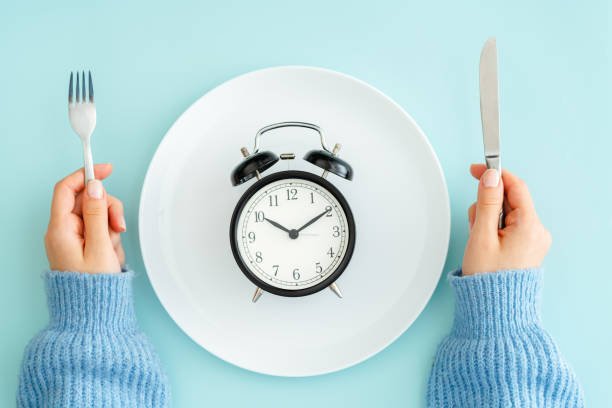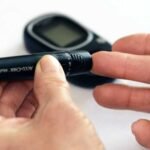
Why Would You Have Hypoglycemia if You Don’t Have Diabetes? Symptoms, Causes, and What to Eat of Hypoglycemia
You don’t have diabetes, but you have symptoms of hypoglycemia? Hypoglycemia is often associated with diabetes, which raises concerns about whether hypoglycemia is a precursor to diabetes.
This article will help you understand the symptoms and causes of hypoglycemia, 6 ways to prevent hypoglycemia, and what foods to eat for first aid when hypoglycemia occurs?
Symptoms of hypoglycemia
The warning value of hypoglycemia is defined as below 70mg/dL. It often occurs suddenly and is accompanied by symptoms of physical discomfort. If hypoglycemia lasts for too long, it can seriously cause brain damage, coma, and even life-threatening.
Low blood sugar may cause the following symptoms:
- Mild hypoglycemia:
When consciousness is clear at this time, the patient may experience various symptoms such as dizziness, pale face, trembling, cold sweats, palpitations, rapid heartbeat, nausea, hunger, weakness, tingling around the mouth, numbness of the limbs, and difficulty breathing. - Moderate hypoglycemia (central nervous system impairment):
The patient becomes confused and may have blurred vision, difficulty concentrating, trouble thinking, pale skin, chills, agitation, tremors, cramps, fatigue, drowsiness, sudden mood changes, clumsiness, slurred speech, restlessness, or coma. - Severe hypoglycemia:
The patient was in a deep coma, with extremely damaged cranial nerve function and unable to be awakened.
6 major causes of hypoglycemia in non-diabetics: Are they precursors to diabetes? Why does hypoglycemia occur?
Hypoglycemia is not usually a precursor to diabetes. Instead, it is often a side effect of diabetes treatment or caused by other habits or conditions; therefore, people without diabetes can also develop hypoglycemia.
Here are 6 non-diabetic causes of hypoglycemia:

- Fasting
The body needs sugar to maintain normal physiological functions. If you fast for a long time, the sugar stored in the body will be used up, and blood sugar will drop. - Excessive exercise
Excessive exercise may cause the body to use too much sugar, which can lead to hypoglycemia. - Eat foods with high GI value often
Foods with a high GI value usually cause blood sugar to rise rapidly, which in turn triggers the release of too much insulin, causing blood sugar to drop sharply. - Insulinoma
Insulinoma is a rare tumor (non-cancerous) that can easily lead to hypoglycemia due to excessive secretion of insulin by the pancreas. However, this condition is rare, with only about 1 case in a million people, and most of them are in middle-aged and middle-aged adults. Females (40-70 years old) are often confused with “pancreatic cancer”; the following is a brief introduction to the differences between the two:
- Insulinoma: a neuroendocrine tumor in pancreatic beta cells.
- Pancreatic cancer: Cancer of the pancreas itself, usually occurring in the pancreatic duct.
- Insulinoma: a neuroendocrine tumor in pancreatic beta cells.
- Long term fatigue
When you are in a high level of fatigue for a long time, your body will release a large amount of stress hormones, such as adrenaline and glucocorticoids. These hormones will promote the body’s consumption of sugar, leading to hypoglycemia. - Drinking too much
Excessive drinking can affect the function of the liver, which may lead to hypoglycemia, because the liver can help create and store sugar. When the liver does not function well, it will affect the storage and release of sugar, which can lead to hypoglycemia.
3 major causes of hypoglycemia in diabetes
Hypoglycemia often occurs during the treatment of diabetes. According to data, most patients with type 1 diabetes have experienced hypoglycemia; among patients with type 2 diabetes, 20% of patients with type 2 diabetes have also experienced hypoglycemia during a six-month follow-up. Hypoglycemia.
The three major causes of hypoglycemia in diabetic patients include excessive use of diabetes drugs, excessive drinking, and changes in diet and exercise. Because diabetic patients have large blood sugar fluctuations, they are easily affected by these factors, leading to hypoglycemia.
- Overuse of diabetes medications
Hypoglycemic drugs and insulin injections will promote the body to convert glucose into energy, and excessive use can easily lead to hypoglycemia. - Changes in diet or exercise
Common reasons include: eating too little or eating at inappropriate times, after using hypoglycemic drugs, or lack of proper food supplement before strenuous exercise, making the original dose of hypoglycemic drugs suddenly too high for the patient, leading to hypoglycemia. blood sugar. - Drinking too much
- Drinking on an empty stomach: An instantaneous increase in alcohol concentration will inhibit the release of glucose from glycogen into the blood, exacerbating the symptoms of hypoglycemia and possibly causing coma. Therefore, diabetic patients must avoid drinking on an empty stomach.
- Drinking alcohol after meals: Alcohol increases insulin resistance, making it more difficult to control blood sugar after meals. In patients with poorly controlled diabetes, blood sugar is likely to rise after meals.
- Drinking on an empty stomach: An instantaneous increase in alcohol concentration will inhibit the release of glucose from glycogen into the blood, exacerbating the symptoms of hypoglycemia and possibly causing coma. Therefore, diabetic patients must avoid drinking on an empty stomach.

What should I eat if I have low blood sugar? How to deal with hypoglycemia
If you have symptoms of hypoglycemia, you should replenish sugar as soon as possible. If the symptoms do not improve, please seek medical attention immediately. If the symptoms improve, it is recommended to wait more than 1 hour between the next meal and add another sugar food.
If the patient is unconscious or unable to cooperate, you can place the patient’s head sideways, pour a tablespoon of honey or syrup between the teeth and cheeks, massage the cheeks to help absorption, and send him to a doctor immediately for treatment.
For symptoms of hypoglycemia, you can choose the following high-sugar foods:
- Candy (hard candy)
Hard candies are candies with a high sugar content and are easy to carry; however, hard candies contain a lot of additives and colorings, so they should not be eaten in excess. - Marshmallows
Fruit juice candies contain low sugar and calories. Moderate consumption of fruit juice candies can maintain blood sugar levels without causing too much impact on health. - Glucose tablets
Glucose can quickly raise blood sugar levels because glucose is a simple sugar that is absorbed quickly by the body; other types of candy may contain fat or protein, which will slow down the absorption rate and slow down the rise in blood sugar. - Juice
Fruit juice contains a large amount of glucose and fructose, and is also rich in vitamins, so it is very suitable for patients with hypoglycemia. - Orange juice
- Grape juice
- Apple juice
Foods to avoid with low blood sugar
Not all juices or foods are suitable for people with hypoglycemia:
- Chocolate:
Due to its high fat content, chocolate will slow down the rise in blood sugar. - Grapefruit juice:
Grapefruit juice contains a substance called naringenone, which can affect the metabolism of some drugs, leading to enhanced or weakened drug efficacy, and adverse effects on people taking the drugs.
How to prevent hypoglycemia? 6 ways to improve hypoglycemia
Here are 6 ways to prevent hypoglycemia:
- Eat regular meals: Avoid long periods of fasting or excessive dieting.
- Control your diet: Avoid excessive consumption of foods with high GI values, such as cakes, desserts, etc.
- Moderate exercise: Avoid excessive exercise or sudden increases in exercise intensity.
- Get proper rest: Avoid long-term exertion and staying up late, which can lead to poor blood pressure regulation in the body.
- Follow your doctor’s prescriptions: Avoid changing your oral hypoglycemic medications or insulin dosage on your own.
- Regular check-ups: Check blood sugar regularly and adjust the dosage of oral hypoglycemic drugs or insulin in a timely manner.












